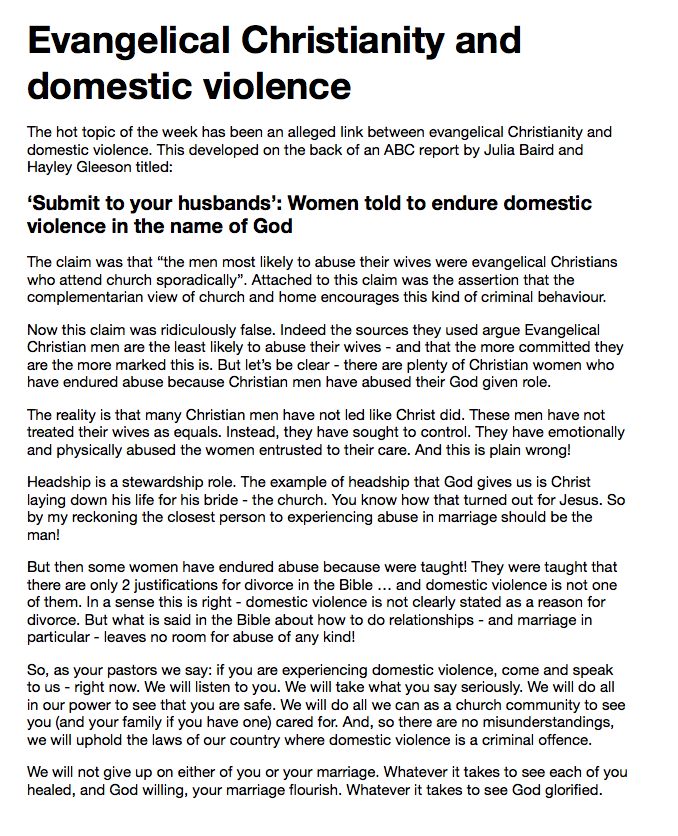I’ve been reliably informed that “losing my religion” means something else entirely, but it should be taken literally here. And if I lose my mind along the way, consider it a tribute to R.E.M.’s intended meaning.
Also: tribes are great. I don’t have anything against tribes. I’m just looking for a new one is all.
Last month, I came to the realisation that after 3 decades of committed involvement in Christian churches–my entire adult life and most of my childhood–it was time to leave the tribe.
Over the years, I’ve preached, been on music teams, done beach missions, led youth groups, attended conferences, and done heaps of other Jesus-related stuff, so this is no small thing. Reaching the point where I no longer consider myself a Christian represents a pretty major transition. (An “epic fall from grace,” you might say, if you’re a Christian.)
I’m not writing about my “unconversion” with a particular agenda. Many others have shared similar stories, and I’m not delusional enough to believe I have an Edgy New Angle on quitting the church that definitely deserves to go viral. I’m simply trying to straighten out my thoughts. I’d also like to avoid explaining myself hundreds of times.
So, what does it mean to “leave the tribe”? Some of my Christian friends have tried to comfort themselves with the notion that this is only about taxonomy–that I’ll be calling myself something different but carrying on as I always have. I’m sorry to disappoint, but I’m not going to be rebranding myself as a “Jesus-follower” and living up to anyone’s expectations of such a person.
What I believe (or don’t) about spiritual things will be between me and a handful of others. Although I currently consider this to be more “identity crisis” than “crisis of faith,” I won’t be keeping you posted on how I’m tracking in the faith department. This is partly because I expect my spirituality to be a moving target (the more I learn, the less certain I am), and partly because I can’t see a good reason for you to know.
I’ll simply be another person trying to live a compassionate, wholesome, and balanced life. Please don’t assume that I’m an atheist, an off-brand Christian, or something in-between–I have no interest in the expectations or baggage of any religious (or irreligious) monicker.
I’m hopeful that I’ll be able to continue many friendships with people of faith, but I realise that some friendships won’t be the same anymore, and others won’t survive this change at all. There will no doubt be moments of grief as the reality of this hits home, but I’m sure the pain will pass.
Becoming progressive
Over the last 10 years, I’ve slowly but surely transitioned from “conservative straight white Christian male” to “progressive pro-diversity anti-patriarchy straight white Christian male.”
At first it was only my politics that changed, but my faith was gradually overhauled too. Although my theology remained conservative (mostly), I became less dogmatic and accepted the legitimacy of alternative views in many areas.
There were several critical moments at which I consciously chose to remain among conservative Christians. I believed it was important to challenge the idea that conservative morality could only be expressed through conservative politics, so I resigned myself to bringing that challenge from within. It was uncomfortable and multiple friendships evaporated, but I pressed on anyway.
Late last year, I become increasingly discouraged with the collective resistance of my fellow Christians to critical thinking, genuine compassion, and real-world action.
I was constantly locking horns with Christians, mostly online but also offline. The battle for Just A Little Bit Of Progress was unrelenting and mostly unrewarded (despite quiet encouragement from a few like-minded friends). My patience was waning, my ability to engage respectfully with bigots was slipping, and my mental health was suffering.
At first I thought it might just be my local church, so I disconnected for a few months and sporadically tried a few others. None of them felt right, all of them would have struggled to have an open conversation about issues that I consider important, and honestly, the weeks I stayed home were more beneficial.
Eventually, I accepted the reality of the situation: I just don’t belong in the Christian tribe anymore. That’s not to say there aren’t Christian individuals with whom I share common views / hopes / dreams. But, ironically perhaps, I’ve lost confidence in institutional Christianity as a vehicle for outcomes that align with the words of Jesus.
You might be wondering if I’m still “following Jesus”. My answer is no, because it’s a phrase that comes with baggage. All I can confirm is that my “Christian worldview” hasn’t been discarded. (But it’s under ongoing review.)
To my Christian friends: I’m sorry to disappoint you, but I’m not sorry to have made this change. I already feel more authentic, more healthy, and more useful.
Welcome to Luke 2.0. The old has gone, the new has come.
